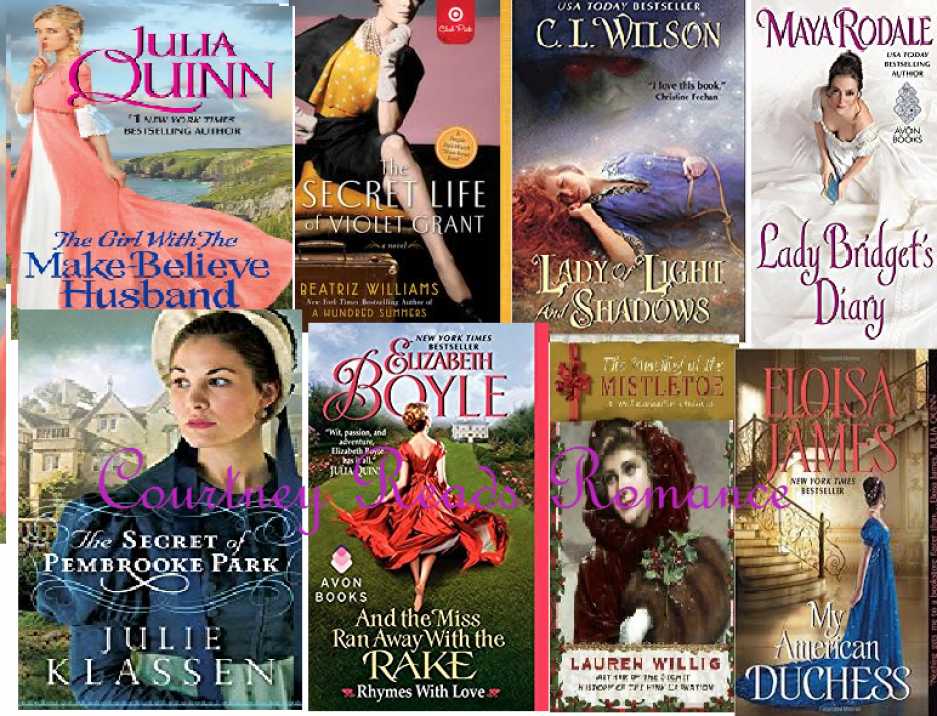Note: This review is largely spoiler-light, but not completely spoiler-free for the Bridgerton Netflix series. It will also contain spoilers for multiple books in the Bridgerton series to provide context for specific points.
Content warnings: Episode 2 contains a graphic birth scene in the beginning. The end of episode 6 contains the infamous sexual assault scene at the conclusion.
Background
Perhaps more than anything before, Bridgerton has shown the existence of several different factions in Romancelandia. We all could collectively come together for one particularly scathing review who resorted to derogatory terms and cautioned “Austenites” to beware, as it’s just another day of someone shitting on romance. But the polarizing opinions as production and promotion moved forward is something to keep in mind for context. Keep in mind, I’m a fan of Julia Quinn and the Bridgerton series, but I firmly consider them problematic faves and in need of unpacking without rose-colored glasses.
There were people like me who were excited without restriction. Any scrap of news merited a celebration. We posted in fan groups, counting down the days. Yes, there would be changes, but as long as they kept to the source material’s heart, it was all good. And the potential for more romance adaptations from big companies if this went well was likely.
But, this brings me to the other two factions. The next is one I’ve addressed in my statement on the casting, although I’d like to address that the method employed was “color conscious” casting rather “color blind.” This is by no means the sole complaint of the “purists,” whose complaints have only piled up as promos have come out. The speculation about whether one of the brothers could be gay did my head in. I got into arguments with more than one person who cited “historical accuracy” and the idea that gay men were frequently imprisoned, or sentenced to death. Never mind the existence of a number of m/m historicals that prove that the gay HEA is possible (both with and without acknowledging wider societal hurdles). And I love how people are totally fine with these random new characters (as that’s who they’ve been confirmed to be) being gay without further context, purportedly resigned the fate they’ve assigned to gay men, but can’t imagine their faces experimented sexually before settling down? Anthony was a notorious rake for fucking crying out loud! Sexual fluidity is a thing! And if they balk at that, but believe these men wouldn’t get the pox from their raking, or that a woman would survive eight pregnancies unscathed back then, it says a lot about what they’re willing to accept in their historical romance fantasies, which everyone has a right to see themselves included in.
Nevertheless, even with these so-called radical changes, the show was still marketed as for “fans of the books,” and with indications of loyalty to the source material. And this segues into the more legitimate criticisms from skeptics. In spite of JQ herself promoting the hell out of it and saying she’s happy with what’s been done, there are still (understandably) some misgivings from people clued in to her past mistakes, the chief of them being how JQ was a member of the “marginalized people don’t get happy endings”brigade at one point, having expressed that opinion on a panel in the presence of several Black historical romance authors. I would like to believe she’s tried to learn, given her earnest promotion of authors like Courtney Milan, Vanessa Riley, and and Beverly Jenkins, but others have highlighted the irony that she was the one to get the glossy Shondaland treatment, when any one of the aforementioned authors, or other BIPOC authors with more consistent track records seemed like a more natural fit instead of injecting Black people into an all-white world, and not doing it with enough sensitivity to racial politics.
And given the…ick factor…of the rape scene in The Duke and I, the early reviews seemed to provide no hope that this was changed or addressed. The scene was very much a product of its time (the book came out in 2001), before we had serious conversations about consent in romance, and these conversations have shined a light on the wrongness of it all. To not take this into account in the age of MeToo seems incredibly short sighted and upends all their talk about creating a progressive take on the period drama. Not to mention that by having the Duke be Black, the subtext of the scene just gets even worse in terms of adding racial undertones to the scene that previously weren’t an issue.
And as much as I like the idea that a Regency romance can have marginalized people existing in positions of power, and can understand them running with the concept of Queen Charlotte being part-Black, as that’s long been a point of speculation, I do think it’s fair that others have had concerns for how they chose to address it, at least in all promotional interviews. Queen Charlotte providing entree for these aristocrats is fine in theory without fuller context, but in reality, slavery was still legal. And note that works by other authors like Vanessa Riley and Courtney Milan do their research to ensure they’re working within the realm of plausibility that does not handwave away the struggles BIPOC faced. For example, with her latest, The Duke Who Didn’t, Milan’s biracial Duke springs from a junior branch who wasn’t expected to inherit the title, and thus they were allowed to marry as they pleased. Riley, meanwhile, delves into the real lives of Black people of the era for inspiration, from the everyday layperson to Dorothy Korean Thomas, mistress to William IV, the focus of her forthcoming historical novel, Island Queen.
And while it’s fair to say that everyone should be entitled to a fantasy (as I noted in my aforementioned comments about gay men), in this case, there needs to be a balance of acknowledging the problems of the past and providing a hopeful ending for them, due to the history of systemic racism.
And so, I ask: why choose this series as the first major Hollywood histrom production? So much is riding on it to determine the future of possible adaptations, and while I understand picking it due to it being so revered, yet the controversies have turned off or at least left a vocal portion of Romancelandia feeling skeevy. The genre is the most lacking in high-budget, good quality film and television adaptations, with exceptions given to the dozens of Austen adaptations, Fifty Shades, and iterations of romance-adjacent properties (Confessions of a Shopaholic, Crazy Rich Asians), and while many contemporary books have been optioned by Hollywood studios, and Netflix currently also is airing Virgin River, based on the Robyn Carr books, this one being the first historical put a lot of pressure on it to do well to show people a historical romance television series could sell to the masses in a similar way. I have also seen the opinion from a few optimistic BIPOC reviewers highlighting this as a positive first step, so I think it is positive to engage and enjoy, while also not being ignorant of the flaws.
Review
General Thoughts/World Building
No good adaptation I’d completely word-for-word. And fans of the same source material will have different ideas of what constitutes a good adaptation. But in my personal opinion, it does a good job of taking the Bridgertons and expanding on it. Julia Quinn has been fairly up-front about writing books that aren’t super historically detailed without feeling too inauthentic, but the show fleshes the story out. Queen Charlotte is a principal character, and you see glimpses of the delirious King George and the possible impact his madness may have had on her.
As I previously noted, the Queen Charlotte theory is an intriguing thing to run with, but I also respected people’s concerns for the way she was being used to incorporate Black aristocrats into the story without interrogating the racial politics of the time. I did find it a tad jarring, for the reasons I stated prior. I appreciated seeing more Black faces overall in all walks of life, especially since it does reflect history as it was (Mondrich being inspired by a real life Black boxer is so cool!) I’ve , much as many want to deny it and pretend ignorance, but the way it was done for characters like Lady Danbury and the Duke weren’t that convincing, due to the way it just hand waves away the wider world colonialism going on during the time period.
Characters/Story Arcs/Relationships
I haven’t read the book in a while, but the reputations of the characters, Simon and Daphne, are a bit divisive in Romancelandia, especially that of Daphne, for the reason of the scene of dubious consent (some interpret the book scene as a moment of non-consent). I feel like the show remedied it slightly by having both be sober instead of him being drunk, but I still feel the fact they some people interpret as nonconsensual and some (especially readers who’ve been reading romance since the days of the bodice ripper, like one I spoke to who denied thinking of was rape) don’t shows that it’s still a problem. And the fact that it could have been avoided (in both iterations) with total honesty? The fact that the violation is brushed under the rug once again is a bit frustrating and I did think it was weird that they would still have romantic interludes while they were meant to be “oceans apart,” however I did ultimately find it satisfying that they came back together in a way that felt more authentic and real.
Speaking of which, the Marina character seems to have been included to portray this lesson of honesty in action (verbalized by Colin), as well as setup, as she is Sir Philip’s late wife in To Sir Philip, With Love. I did question at first that there were some obvious Cinderella undertones to her relationships with Lady Featherington and even the Featherington sisters, given the plot of An Offer from a Gentleman, but who can say what will happen where that book is concerned?
And now for the brothers. I definitely remember Anthony being a hypocrite and overprotective Papa Bear who was also sleeping with opera singers on the side, because Societal double standards, but I definitely don’t remember him being such an arse to pretty much everyone, and he was definitely made much more so with some of the changes and additions. He underestimates Daphne and is overbearing and managing about her love life, which I could take to an extent, although some of his choices in managing her life crossed the line here that they didn’t in the book. He is obviously rude to Simon, and I did appreciate that the tension did get some satisfactory fulfillment, since the duel was so anticlimactic in both mediums. But him also being so hot-and-cold with his mistress? Like, he’s in love with her and claims to want to protect her, but then he cuts her loose, but then he’s sniffing at her skirts again, making more promises he can’t keep? When she finally kicked him to the curb, I was happy, and I can’t wait for Kate to get him in line (although there’s definitely another opera singer in the mix…hopefully Siena doesn’t go back to him next season!) I do like that he does have a bit of an arc of growth, with hints at his fatalistic nature (a big part of his arc in The Viscount Who Loved Me), and what could have factored into the decision of the practical union he wants at the beginning of that book (beyond the anticipation of his own demise, that is).
Colin is a lot of fun, and I liked seeing that balance between the Colin we know and love and the one who is experiencing his first real love and disappointment.
Benedict is the most “mysterious” of the brothers, perhaps in large part as he was the least defined by the point in the story we’re at. He’s very open about his artistic talents, more so than he was in the books, and it led him to some “interesting” places, some of which were highlighted by some of the promotional material. Given his acquaintance with Henry Granville, one half of the much-remarked upon and gossiped-about gay couple from the trailers, and some conversations they have about forbidden love, I do wonder how that sets up for Benedict’s own future romance, especially since we don’t know how book loyalty vs. liberties will fare going forward, and his and Sophie’s arc in particular has been the subject of much speculation (although without much basis at this point).
Much has been made of how the actors for the Bridgerton boys look like brothers, but I love how they act like brothers too. They, Daphne, Eloise, and the rest all come together convincingly to play a rambunctious family that feels true to how they were written. Look no further than the infamous dinner scene, with the pea throwing, one of the first to be revealed in advance of release. The chemistry is there, and one of the key selling points for any book fan unsure of whether they want to watch the show.
And the little scenes of one or two of them together are just as great as the bigger group moments. While there are some book accurate ones, like Daphne and Anthony’s late night talk and Violet and Daphne’s “sex talk” (if it can be called that), there are other moments, like several between Benedict and Eloise that made me smile. Eloise is such a firebrand and I love now she and Benedict relate to one another in terms of not really feeling like they fit into what Society expects.
I liked the fleshing out of Penelope as a character, in her friendship with Eloise, her unrequited love for Colin, and the resulting frenemy relationship with Marina. She is genuinely a good person, contrasted with her selfish family, but I liked seeing moments of her vindictiveness, especially as that plays into her identity as Lady Whistledown. For in the book, the Marina plot and how it intersects with the Featheringtons expertly foreshadows and ultimately makes the the reveal, in a way that, if you were only reading along with The Duke and I for the first time prior to or along with watching this season, you would know she’s Whistledown prior to the point when most book readers did, in her own book later in the series. While I do wonder if it will kill the suspense going forward, I do think it was a clever thing to do for the already existing audience going forward, especially since the books did end with scenes from Whistledown’s POV.
The series also gave me a lot of renewed respect for Lady Danbury. I never disrespected her, but I think I appreciated her more after this portrayal. Something about the subtle showing of her relationships with both Simon and his mother, and how she connected with Simon as a boy by talking about how she transformed herself from a shy young woman into the fearsome dragon. I definitely need her story. It doesn’t have to be a romance, I just want something in any medium with her as the main character.
Overall Opinions
While I definitely understand the issues people have raised and my opinions align on a few of them, I still enjoyed this and hope it does well enough to merit future seasons (a second season is said to already be in development). And as for the more petty issues of book accuracy, related to casting choices and plot, I feel like people were splitting hairs with little to go off. I can understand avoiding the show due to the baggage that comes with the author and the source material, or our concern over your mental well-being where sensitive content is concerned. But I do feel that fans who love the books will like the show if they consider it as “inspired by” and “paying homage to” their favorite series, with many moments that are directly lifted from the pages or feel reminiscent of it, although embedded among a bit of dramatic license. I personally enjoyed it for the most part, and think it’s worth watching for fans of the books, or Regency romance in general, who are open to slightly different take on the genre. Here’s hoping that this will indeed see more Hollywood interest in romance, and historicals in particular, and that this will lead to more deals for stories like the aforementioned titles and other awesomely diverse historicals.

















